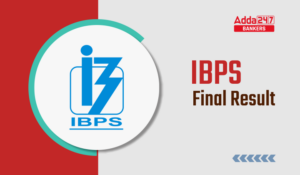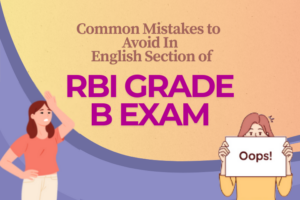Table of Contents
Students if you are preparing for a competitive exam then the English section is one of the important sections especially in the Banking Exams. Tense is the most basic topic in the English Section In the English Language section, a banking aspirant is supposed to be well-versed with Tenses Rules as it forms the majority of the questions that are asked in the examination. We give you a detail about Types and Rules of Tenses, with the help of these rules, you will be able to recognize the type of tense and you can also form new sentences very easily and quickly. In this article, we will be discussing one of the most important Tenses Rules learn Basic English grammar with us. Here we will describe all the important tenses rules, It will helpful for your competitive exams also.
Tenses Rules: Learn Basic English Grammar
What is Present Tense?
A present tense is defined as an action that is currently going on or habitually performed, or a state that currently or generally exists.
The Present tense is further divided into four types:
Present Indefinite
Present Continous
Present Perfect
Present Perfect Continous
Also read,
- Basics Rules of Noun
- Basic Rules of Verb
- Basic Rules of Subject-Verb Agreement
- Basic Rules of Conditionals
Present Indefinite:
It basically denote habit, custom, practice, repeated actions, general truth, permanent activity, etc. It is also used for statements mentioning ‘historical present’ and ‘future arrangement’. (Eg: She leaves his job next week)
The correct structure of the sentence of Present Indefinite will be:
SUB + V1/ V5+ ………
SUB + IS/ AM/ ARE+ COMPLEMENT
- Example: She work with an esteemed organization.
Also read,
- How to Increase Calculation Speed to Crack Bank Exams?
- English Grammar Rules that Can Get You Confused
Present Continous
The present continuous is also known as the present progressive, it is a verb form used in modern English that combines the present tense with the continuous aspect.[
The correct structure of the sentence in Present continous will be:
SUB + IS/ AM/ ARE+ V4 (V+ing)…..
Example: He is working in Canada.
Present Perfect
The present perfect tense denotes an action or state that either occurred at an indefinite time in the past or began in the past and continued to the present time.
The correct structure of the sentence in present perfect will be:
SUB + has/have + V3 …..
- Example: I have been to malaysia twice.
Present Perfect Continous
The present perfect continuous refers to the amount of time for which an action has been taking place.
The correct structure of the sentence in present perfect continous will be:
SUB + has/have + been+ V4 (V+ing) ….. + (for/ since + time)
Example: Mohit has been working at that company for five years.
Rules Related To Simple present tense for First Person Singular:
‘I’ + verb (base form) + object (optional)
Example-
1) I study hard for exams.
2) I go to work every day.
The formula of to convert it into negative sentences is:
‘I’ + do/ does not + verb (base form) + object (optional)
Example-
1) I do not work hard for exams.
2) I do not go to school everyday.
Also Read,
Rule for converting it into Interrogative sentence is as follow:
Do/ Does + ‘I’ + verb (base form) + object (optional)?
Example-
1) Do I work hard for exams?
2) Do I go to school everyday?
Rule for converting it into negative interrogative sentences is as follow:
Do/ Does + ‘I’ + ‘not’ + verb (base form) + object (optional)?
Example-
1) Do I not work hard for exams?
2) Do I not go to school everyday?
Rules Related To Simple Present Tense for First Person Plural
The Rule for Simple Present Tense for First Person Plural is as given below:
‘We’+ verb (base form) + object (optional)
Example-
1) We work hard for exams.
2) We go to school every day.
Just add do/does not after “We” to make it into negative sentence
Example-
1) We do not work hard for the exams.
2) We do not go to school everyday.
Rule for converting into interrogative sentences is as given below:
Do/ Does + ‘we’ + verb (base form) + object (optional)?
Example:
1) Do we work hard for the exams?
2) Do we go to work everyday?
Rule for converting it into negative interrogative sentences is as given below:
Do/ Does + ‘we’ + ‘not’ + verb (base form) + object (optional)?
Example-
1) Do we not work hard for the exams?
2) Do we not go to work everyday?
Also Read,
Rules Related To Simple Present Tense for Second Person
The formula for simple present tense when a Second Person is involved is as follows –
‘You’ + verb (base form) + object (optional)
Example-
1) You work hard for exams.
2) You go to school every day.
Rule for converting it into negative sentences is as given below:
‘You’ + do/ does not + verb (base form) + object (optional)
Example-
1) You do not work hard for the exams.
2) You do not go to school everyday.
Rule for converting it into Interrogative Sentence is as given below
Do/ Does + ‘you’ + verb (base form) + object (optional)?
Example-
1) Do you work hard for the exams?
2) Do you go to school everyday?
Rule For converting these sentences into negative interrogative sentences is as given below:
Do/ Does + ‘you’ + ‘not’ + verb (base form) + object (optional)?
Example-
1) Do you not work hard for the exams?
2) Do you not go to work everyday?
Rules Related To Simple Present Tense for Third Person Singular
Rule for simple present tense for Third Person Singular is as follows –
He/ She/ Common Nouns/ Proper Nouns + verb (base form) with s/es at the end + object (optional)
Example-
1) She studies hard for exams.
2) Mother goes to work every day.
Rule for converting these sentences into negative sentences is as given below:
He/ She/ Proper Noun/ Common Noun + do/ does not + verb (base form) + object (optional)
Example-
1) She does not study hard for exams.
2) Mother does not go to work everyday
Rule for converting these sentences into interrogative sentences is given below:
Do/ Does + he/ she/ common noun/ proper noun + verb (base form) + object (optional)?
Example-
1) Does she study hard for the exam?
2) Does mother go to work everyday?
Rule for converting these sentences into negative interrogative sentences is as given below:
Do/ Does + he/ she/ proper noun/ common noun + ‘not’ + verb (base form) + object (optional)?
Example-
1) Does she not study hard for the exam?
2) Does mother not go to work everyday
Rules Related To Simple Present Tense Formula for Third Person Plural
Rule for simple present tense for Third Person Plural is as follows
They/ Common Nouns + verb (base form) + object (optional)
Example-
1) They work hard for exams.
2) Girls go to work every day.
Rule for converting these sentences into negative sentences is as given below:
They/ common noun + do/ does not + verb (base form) + object (optional)
Example-
1) They do not work hard for the exams.
2) Girls do not go to work everyday.
Rule for converting these sentences into interrogative sentences is as given below:
Do/ Does + They/common noun + verb (base form) + object (optional)?
Example-
1) Do they work hard for the exams?
2) Do girls go to work everyday?
Rule for converting these sentences into negative interrogative sentences is as given below:
Do/ Does + They/ common noun + ‘not’ + verb (base form) + object (optional)?
Example-
1) Do they not work hard for the exams?
2) Do girls not go to work everyday?
Click Here to Register for Bank Exams 2020 Preparation Material
Visit Achieversadda.com and participate in discussions with other aspirants and achievers. Get answers to your queries and connect with others on Achieversadda.com
| SBI PO 2020 | IBPS PO 2020 | SBI Clerk 2020 | IBPS Clerk 2020 |
| RBI Grade B 2020 | RBI Assistant 2020 | LIC AAO & AE | SEBI Grade A 2020 |








 IBPS Final Result 2025 Coming Out Tomorr...
IBPS Final Result 2025 Coming Out Tomorr...
 Simple Tips to Avoid Common Mistakes In ...
Simple Tips to Avoid Common Mistakes In ...
 Important Topics & Shortcuts for IDB...
Important Topics & Shortcuts for IDB...




